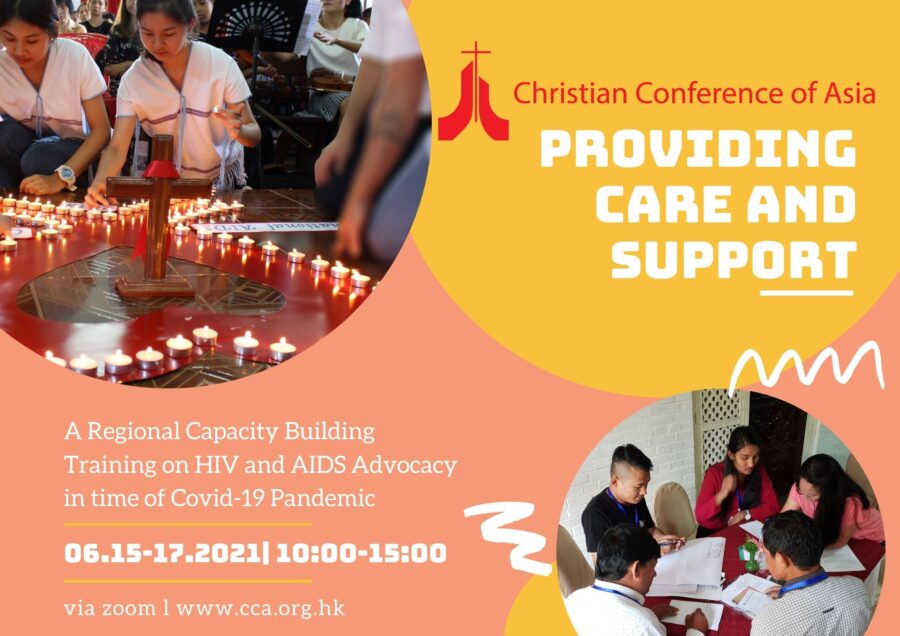CCA invites applications for online ‘HIV and AIDS Advocacy’ Regional Capacity Building Training

The Christian Conference of Asia (CCA) invites applications for an online Capacity Building Training on ‘HIV and AIDS Advocacy’.
The Regional Capacity Building Training will be held entirely online from 15 to 17 June 2021 and will focus on honing the skills of those who attend through a participatory learning process that will enable them to become advocates and agents for change in their respective countries and localities.
Combatting HIV and AIDS has been a special focus of the CCA, and several skill-building and advocacy programmes have been conducted to address the rampant spread of HIV in Asia. The programmes have aimed at building HIV-competent churches and communities, and strengthening partnerships with grassroots level HIV and AIDS prevention working groups and civil society organisations.
In the context of the ongoing pandemic, as COVID-19 disrupts health systems and affects human health globally, it is crucial to protect those most impacted by COVID-19, sustain gains made to address other infectious diseases, and maintain people’s access to life-saving health services. Critical priorities during the COVID-19 pandemic include ensuring continuity of treatment and support for viral suppression among people living with HIV (PLHIV), continuing to identify undiagnosed individuals and ensure their prompt enrollment on treatment, and helping those who are at risk of HIV acquisition remain HIV negative.
The CCA has been journeying on building the capacity of its members to become inclusive and relevant for PLHIV. The upcoming regional capacity building training will enable participants to gain skills, tools, and knowledge that will help them and others to respond effectively and advocate for HIV and other related issues in the current context.
Applications are invited from interested persons to be engaged in advocacy in combating HIV and AIDS. Admissions to the skill-building training will be limited to 35 participants.
The deadline for receiving applications is 28 May to 30 May 2021.
For the application form and the concept note, please download the documents below:
- CCA HIV and AIDS Capacity Building Training – Concept Paper
- CCA HIV and AIDS Capacity Building Training – Application Form










